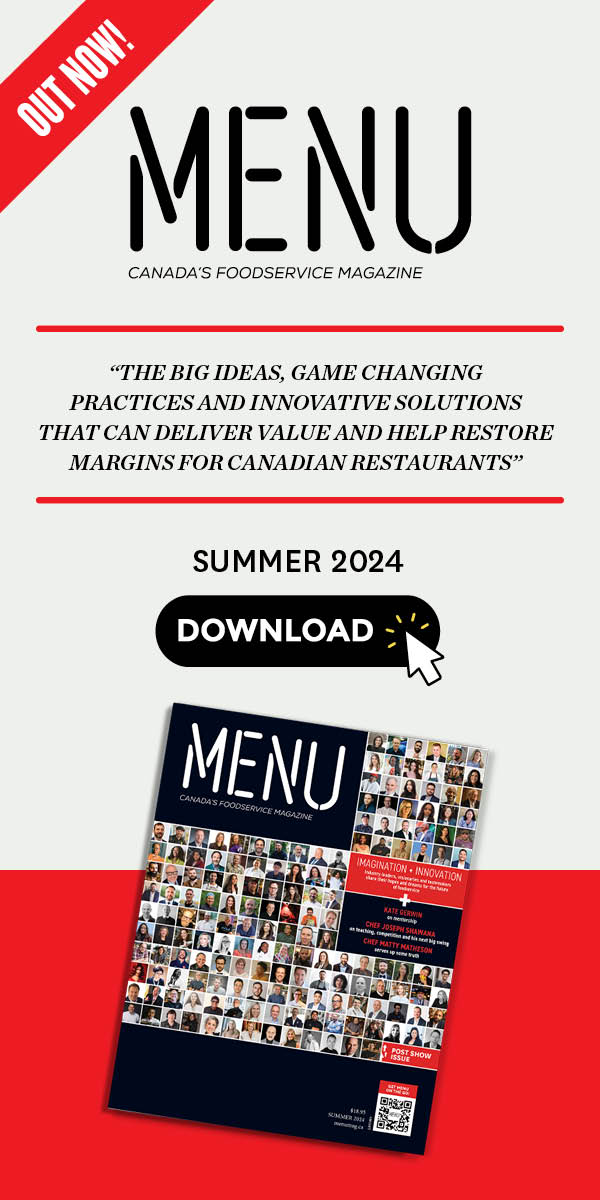Putting People and the Planet on Par with Profit:

In Conversation with Court Desautels, CEO of Neighbourhood Group of Companies
The Neighbourhood Group of Companies (NGC) was started by Bob Desautels in 1990 with environmental and community responsibility built into the fabric of the business. Responsibly harvested ingredients and a strong commitment to minimizing their carbon footprint were always part of the vision because Bob Desautels believed that a focus on sustainability made for good business policy. Current CEO Court Desautels has built on that foundation, expanding the business and its definition of sustainability to include people as well as the planet.
“I’m an S.O.B.,” says Court, “Son of Bob.” After a stint at Sleeman Breweries, Court, the young Desautels joined the company in 2006, taking over management of the Wooly Pub, NGC’s first property. He opened Borealis Grille & Bar in Guelph in 2008 and a second location in Kitchener in 2011. In 2015 Desautels opened Miijidaa in Guelph, and took over as CEO in 2016. The Park Eatery, NGC’s most recent restaurant, opened in Guelph in 2019. Headquartered in Guelph, NGC currently operates five restaurants.
Desautels’ vision for NGC is to deliver superior service with a sense of social responsibility coupled with unwavering dedication to environmental sustainability. And it all starts with employees. “Our industry is built on the backs of workers,” he says. “We expect them to cater to guests, to make sure every customer is happy. Historically, we haven’t paid them well, and have worked them long, hard hours. We take a reverse approach: if our people are happy, our guests will be happy.”
If the choice is between “carrot” and “whip,” Desautels is determined to choose the carrot all the way. NGC rolled out a health benefits program for employees in 2014, which included both salaried and hourly employees. “At first, our investors were hesitant because of the cost,” he admits. But rolling out the program restaurant by restaurant showed the success of the experiment The first restaurant to deliver the health benefits program showed immediate results. “It had the lowest employee turnover and the highest increase in sales,” he notes. “When you’re able to keep your employees longer, they get better at their jobs. When employees are more engaged in their work, they have better interactions with guests, which results in increased sales.”
When you’re able to keep your employees longer, they get better at their jobs. When employees are more engaged in their work, they have better interactions with guests, which results in increased sales.
Encouraged by that success, NGC decided to it keep going, introducing a health and wellness program in 2018. “The idea was to encompass habits and resources, to meet non-benefit needs employees might have. For instance, since many of our hourly employees are students on tight schedules, we made sure to serve healthy snacks and to make nutritious food available so they could attend classes without skipping meals,” he shares. They even ran a bus pass program for employees, a twofold effort that provided employee assistance while promoting environmental responsibility.
Over time, the company has introduced other programs and incentives. NGC’s education fund for both salaried and hourly employees provides access to annual amounts to help them pursue professional development. Another strikingly original plan was to introduce a micro-loan program to help employees escape the trap of predatory lenders. “Some of our employees were losing 30 per cent of their pay so they could quickly access cash to pay for rent or food,” says Desautels. “We instituted micro-loans which they could pay back over many pay periods.”
The pandemic hit NGC as hard as every other part of the food and hospitality sector. Before any government relief programs were announced, Desautels and his team went to work, creating a relief fund for the 156 employees who suddenly found themselves without incomes. “We sold gift cards to raise money,” he recalls. “We were hoping to raise $10,000 to help offset the financial impact on our most vulnerable employees. Instead, our guests helped us raise $60,000.” Then they had to come up with a non-biased application process to distribute the funds. A group of 12 people, including Desautels, investors, managers and hourly employees, formed a committee to examine all the applications and allocate the funds. “During that period, we continued health benefits for everyone, even if they were laid off.”
Court began the process of striving for B Corp certification in 2011. “There are a lot of steps to take, and goals to meet. Success is measured by people, not profits. And the focus is stakeholders, not shareholders.
Communication was key. They held bi-weekly town halls to keep in touch, and their outreach didn’t stop there. “We looked at all the specialties our employees had to offer,” he says. “Hospitality workers are hardworking, very productive and they like to help people. One staff member was also a yoga instructor—we hired her to give online yoga sessions to employees. We also hired a storyteller to read stories to children while they were at home all day, so parents could have a little break.” Originally intended solely for staff, these online offerings were eventually made available to guests as well. “It worked both as entertainment and as a way to promote our employees’ side-hustles.”
Like so many other foodservice operators, NGC was left with food on hand in the wake of the shutdowns. “We donated food to staff, then to local organizations and shelters. We processed the ingredients into soups, stews, curries and then worked with food organizations to help plan and distribute meals. Our staff made that possible. Because they had been helped and supported by us, our employees had time and resources to help other people.”
Generosity can be circular in nature, and a business can be a force for good. NGC is a certified B Corp company, part of a growing movement that sees responsible business as a force for societal and environment change and prioritizes accountability, performance, and transparency. “We’re audited on our environmental and social governance initiatives, as well as our employment policies and guest services,” says Desautels. “‘People, planet, profit’ has always been our model, even when we were just a craft beer bar. Back then, we raised money for environmental action in our area. Over time, we’ve developed our social aspect—how we support our people as well as our community.”
Court began the process of striving for B Corp certification in 2011. “There are a lot of steps to take, and goals to meet. Success is measured by people, not profits. And the focus is stakeholders, not shareholders.” Restaurant groups are not particularly well represented in the B Corp fold: NGC is one of the largest in Canada. Court sees the need for participation now more than ever. “A lot of communities are suffering. If we can keep people from slipping into volatile situations, we have an obligation to help.”
Help starts with a shift in perspective. In contrast to the old-school idea that business and personal lives should be kept separate, Desautels encourages exactly the opposite approach. “Get involved in your employees’ lives. That’s how you can find out what services they need, and how you can tailor what you offer them. Think about it in terms of food: you don’t offer your customers just one way to have a burger—you have a variety of options. So, you can’t take a one-plan-fits-all approach to employee programs either.”
Ultimately, we want to create good credit for our employees. The restaurant industry has long been a source of first jobs, for young people and for new Canadians—people with no credit history. Credit is a powerful tool: how can we facilitate that? We’re not there yet, but we’re working on it.
Currently Desautels is exploring ideas for future projects and creating a formal employee retention plan. Helping employees build financial resilience is a major priority. “We’re working on ways to offer up-front bonuses, to remove financial stressors right from the start.” NGC has also designed programs to help employees save and invest. “Ultimately, we want to create good credit for our employees. The restaurant industry has long been a source of first jobs, for young people and for new Canadians—people with no credit history. Credit is a powerful tool. How can we facilitate that? We’re not there yet, but we’re working on it.”
Although NGC wasn’t able to keep all their employees through the pandemic, enough staff stayed on that when restricted capacity reopening was possible, they were fully staffed. “Word of mouth is the strongest form of advertising. That’s true for employees as well,” says Desautels. “People who worked for us spread the word. And, as things normalized, we were people’s first choice when they returned to the industry. We’re back up to 150 employees now, right where we were before the pandemic.”
The massive sector-wide staff shortage puts employees in control, and a growing number of industry professionals feel that’s how it should be. “If you were not a good employer before the pandemic, you’re probably in dire straits now,” Desautels speculates. “Even if you were a good employer, you have to continue to evolve. Be creative, find out what matters most to your team. Tailor your programs and offerings down to the individual level. It’s not charity. It’s good business.”
Court acknowledges that it feels counterintuitive. “People think ‘it will cost too much.’ But what will it cost you when your employees leave? We figure that, at the entry level, it costs three to five thousand dollars to lose an employee. It’s not the training, it’s the time it takes to get people up to speed. But we’ve seen it right there in our restaurants, the lowest turnover rate correlates directly to lower costs, better sales and higher profitability. We’re finally starting to see the narrative change.”










